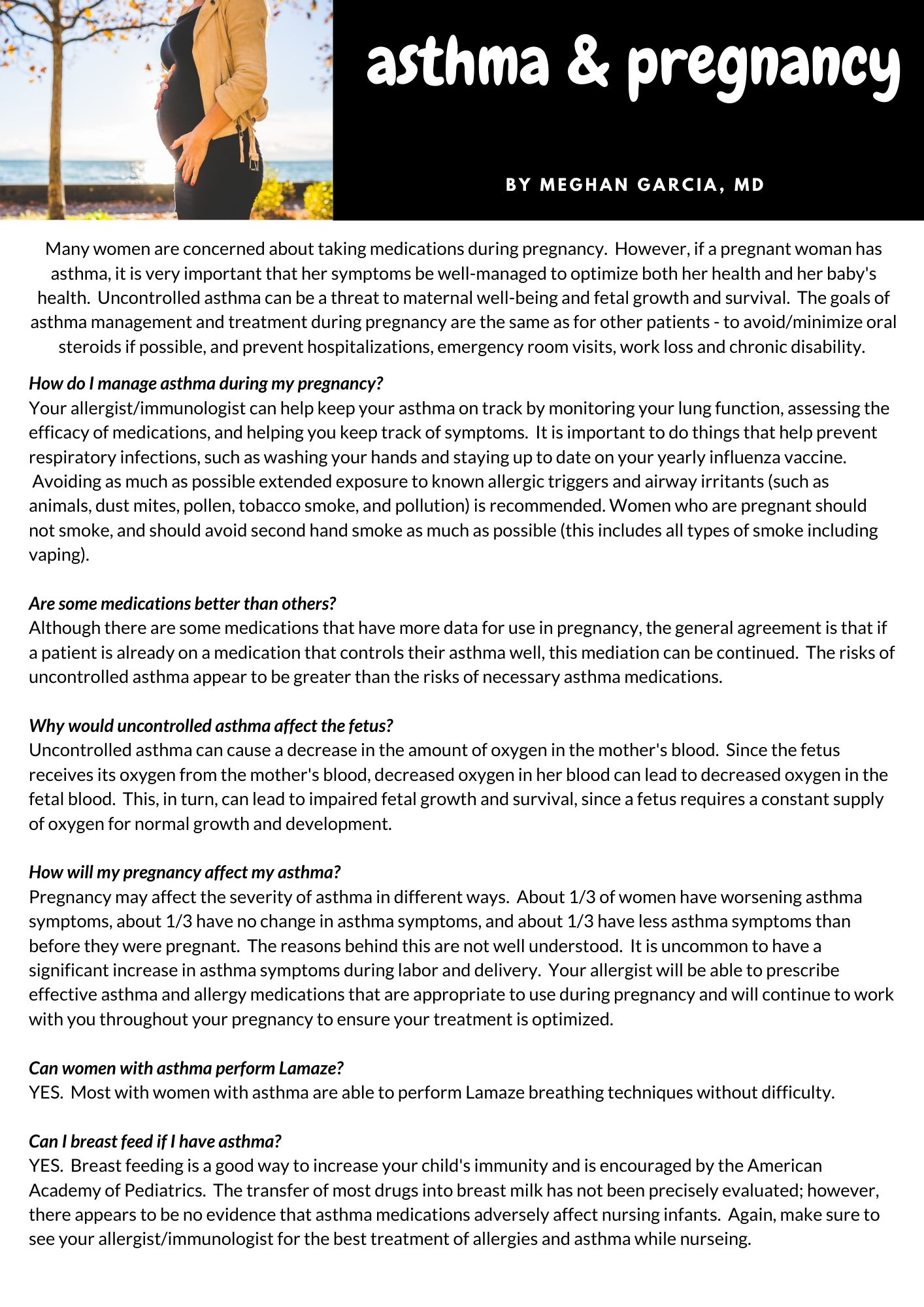

You have no doubt been following the developments on COVID-19, and you may have some questions about what to do if you are experiencing symptoms of illness. We hope this information helps to clarify some questions you may have.
At this point in time, testing is not easily available to the community. Therefore, we cannot always test every person having respiratory symptoms for COVID-19. If you are experiencing any symptoms of infection, you must assume that the symptoms could be related to COVID-19. Symptoms can start from 2-14 days after exposure to the virus. Symptoms may include:
Some patients experience more mild symptoms that can be treated/monitored at home. If you have an underlying chronic lung disease such as asthma, it is important to take your medications as directed by your doctor. You can contact your doctor to let them know you are sick, and decide if any other treatments are needed. At AACPC we would welcome you to make a telemedicine visit so your symptoms and concerns can be discussed via video chat from the safety of your home. It is best to stay out of the doctor’s office to avoid exposing other people to illness.
There may be instances where a higher level of evaluation and care is needed than what you can do at home. In these cases, we recommend that you go to the ER, or call 911 if you are unable to have somebody drive you (or if it is a more urgent emergency). You should alert the medical team as soon you come into contact with them that you are having respiratory symptoms so they can use the proper precautions. Symptoms for which you should seek medical attention include:
There have been some reports of other less common symptoms that may be related to COVID-19 infection. If you or a family member experiences any of these symptoms, please call your primary care doctor to discuss further:
If you have symptoms of illness, you should only leave the home for emergencies. Let somebody else do the grocery shopping. Isolate yourself as much as possible from other household contacts and pets. Use a separate bathroom if possible. If you have to interact with anybody in your home, wear a mask. Try to get plenty of rest, but please try to change position often and avoid spending a lot of time lying flat on your back. Most patients with respiratory illnesses feel best when they change position often (every 30 min to 2 hours). Try lying on your sides, stomach, and sitting up or at a slight incline. This may help keep the air sacs in your lungs open. Monitor your symptoms (such as taking your temperature). Wash your hands often. Do not share dishes or utensils with other family members, and wash used dishes in the dishwasher, or thoroughly with soap and water. Clean all surfaces regularly. See this handout from the CDC, which outlines several of these points.
https://www.cdc.gov/coronavirus/2019-ncov/downloads/10Things.pdf
In terms of when it is considered safe to discontinue home isolation, the following guidelines are recommended by the CDC:
WE CAN’T SEE THEM, BUT THEY’RE OUT THERE…
Here is a video demonstrating how germs are spread. Gross-yes, but important to know about!
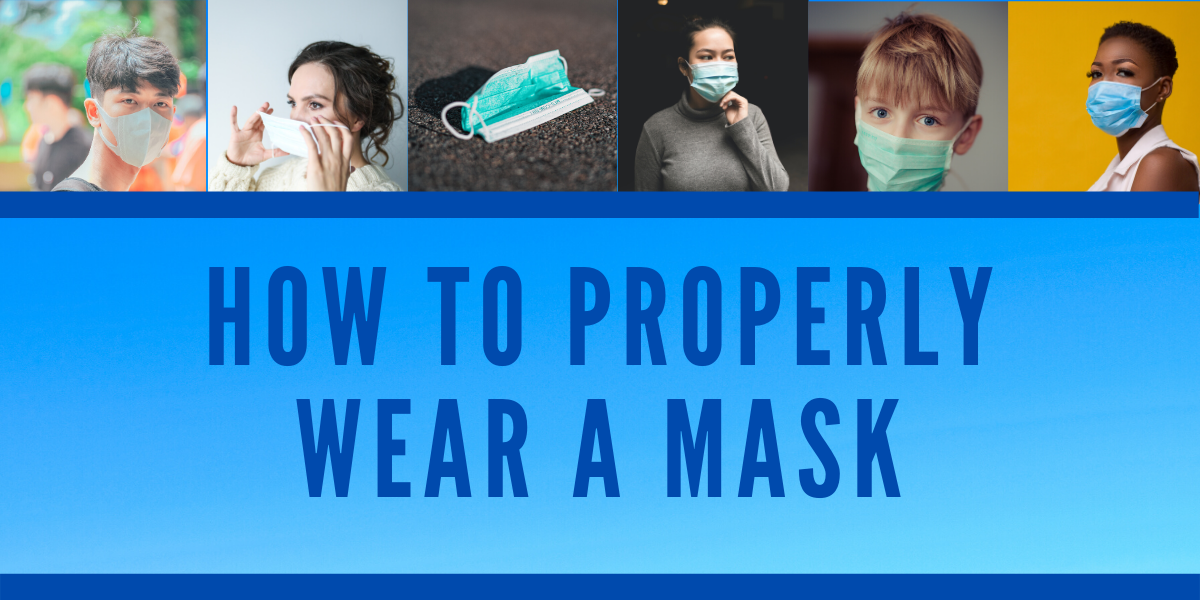
Universal mask use has been recommended in Colorado when in public.
To optimize the efficacy of a mask, it is important to know how to properly put it on and take it off.
TO PUT MASK ON:
TO TAKE MASK OFF:
Once your mask is on, try to avoid touching your face.
Do not pull the mask down below your nose, or up above your chin.
Do not let the mask rest under your chin. When it’s on, leave it on in the proper position until you are ready to take it off.
Do not store your mask in your pocket, purse, or other unprotected place. You want to keep the mask as clean as possible, and want to keep it away from other things in case it is contaminated.
Here is a video illustrating some of these tips:
We understand that this is a lot of information, so please do not hesitate to contact us with questions or concerns.
Remember, we have telemedicine visits available that can be done in the comfort of your own home. Stay safe and healthy!
by Dr. Meghan Garcia
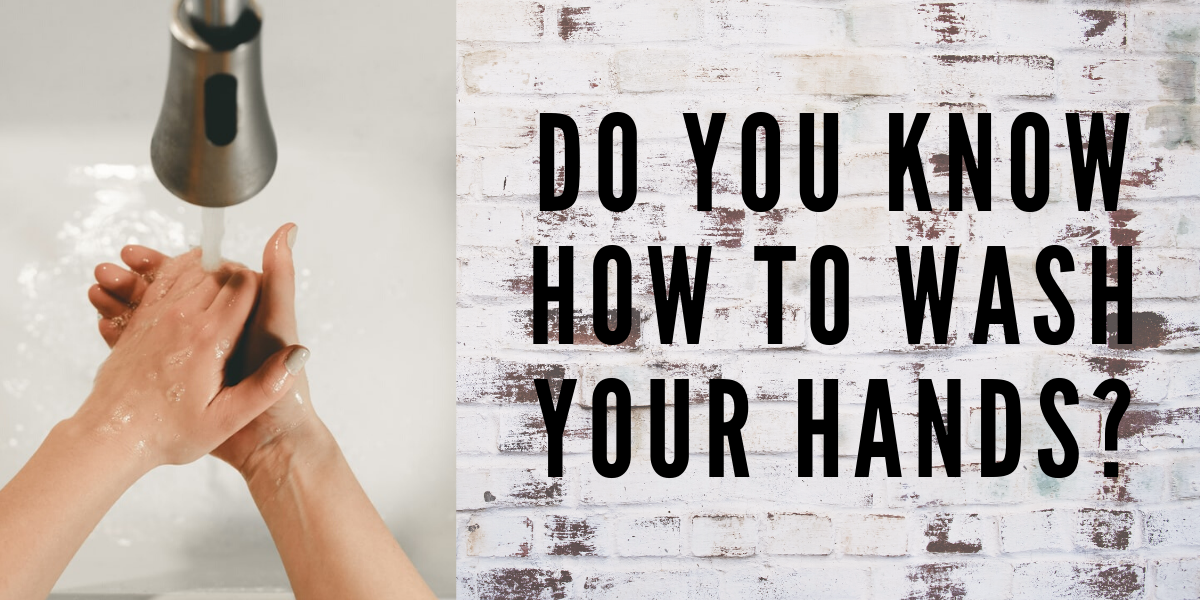
YES, there is a “right way” to wash your hands! And now it is more important than ever that you get this right! Want to see how your hand washing stacks up to expert recommendations?
This video uses a UV product to simulate germs on the hands and the efficacy of different methods of hand washing: https://youtu.be/-LKVUarhtvE
This video demonstrates the WHO technique for hand washing: https://youtu.be/IisgnbMfKvI
Please take note, there is no special kind of soap needed (such as antibacterial soap). All soap will work against killing viruses and bacteria.
STAY HEALTHY – WASH OFTEN
by Dr. Meghan Garcia
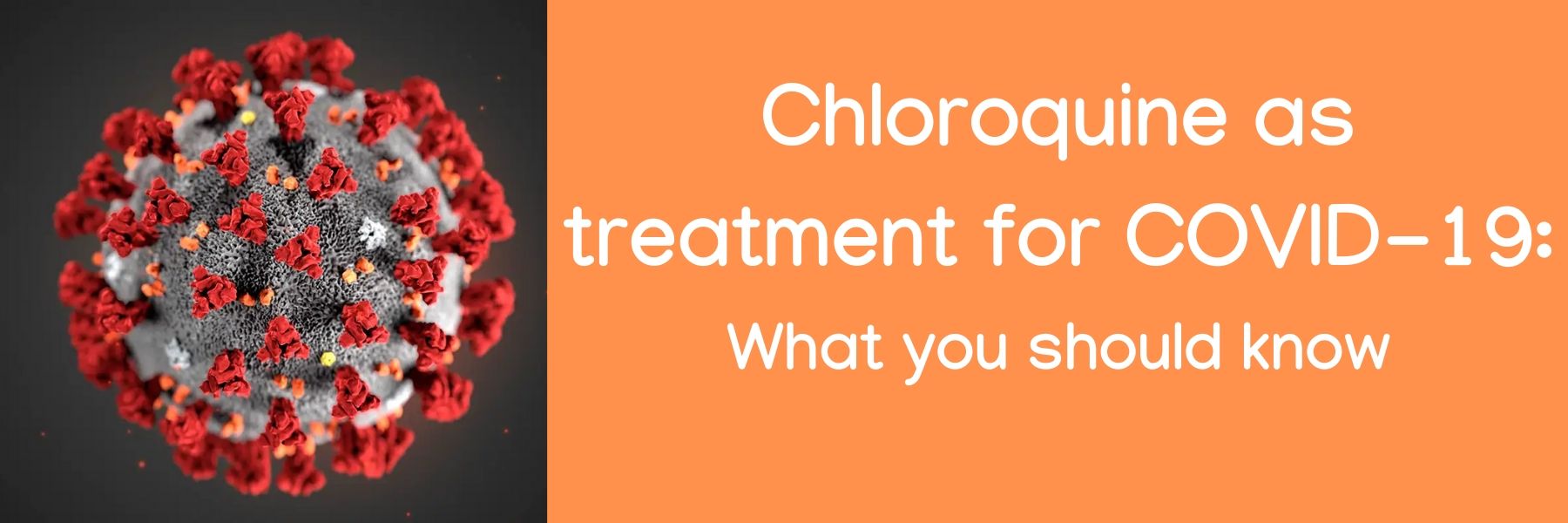
It is likely that you have read or heard about chloroquine or hydroxychloroquine for prevention or treatment of COVID-10 infection. As there have been instances of people finding and ingesting non-pharmaceutical grade chloroquine phosphate, we wanted to provide a warning to our patients and the community that this should NOT be done under any circumstances. Unfortunately in one report of a couple who ingested chloroquine phosphate designed to be used in aquariums, both became very ill. One person died before arrival to the hospital and the surviving person was in critical condition for several days with cardiac and gastrointestinal complications. The CDC has reported that online sales of these non-pharmaceutical grade products has been increasing significantly, which raises concern that people may be planning to ingest them.
Unfortunately at this time, there are no medications that have been FDA approved for prevention or treatment of COVID-19. Pharmaceutical grade chloroquine phosphate and hydroxychloroquine sulfate are currently being studied as treatment for COVID-19 infection, however the efficacy of these drugs has not been established. These drugs are used to treat autoimmune diseases like Lupus and Rheumatoid Arthritis, as well as malaria prevention and treatment. They do have well known side effects such as cardiac arrhythmia (specifically prolonged QT interval), retinopathy (damage to the eye), gastrointestinal symptoms such as nausea/vomiting/diarrhea, and blood count abnormalities. More serious neurological symptoms have been noted (usually at higher doses) such as seizure, dystonia (repetitive muscle contractions), tremor, and ataxia (incoordination of movement and speech). Therefore, these medications should only be taken if prescribed by a doctor and should always be taken at the dose prescribed.
We understand that this is a scary time, and that people want to feel like they have something more definitive that can help prevent or treat COVID-19. However, we urge you to follow your common sense. Please do not take medications that were not prescribed to you. Please follow the instructions of medications you are prescribed. Please do not ingest non-pharmaceutical products. Please continue to wash your hands thoroughly and often, try to avoid touching your face, and follow stay-at-home orders/social distancing to protect your family and the people in your community.
-Meghan Garcia, MD
Resources:
https://emergency.cdc.gov/han/2020/han00431.asp
https://reference.medscape.com/drug/aralen-chloroquine-phosphate-chloroquine-342687

As the COVID-19 pandemic evolves, the medical community is adapting to the best ways to practice medicine in the face of this very contagious virus. One concern has been the risk of spreading the virus during a nebulizer treatment. This has been especially important in the hospital setting because patients may have several healthcare workers in their room during or after a breathing treatment. Due to this concern, hospitals have switched entirely away from using nebulizers and instead are using metered dose inhalers to deliver medications such as albuterol.
There are questions about whether we should universally stop using nebulizers at home as well. The answer, like so many questions around COVID-19, is less clear.
For many patients using an albuterol inhaler delivered with a spacer device (or otherwise excellent technique) may result in the same symptom improvement as a nebulizer. Therefore, patients at home should start with albuterol given via the inhaler with a spacer. For our youngest patients, delivery of medications (albuterol or inhaled steroids) via an inhaler and spacer may or may not work well, but it is certainly worth trying an inhaler with spacer as our starting point.
Additionally, there are many other explanations and triggers for asthmatic symptoms, beyond COVID-19, which may necessitate the delivery of medications via a nebulizer.
At this time we recommend that when the MDI inhaler is NOT improving symptoms, a nebulizer delivery may be tried with the following considerations:
We will continue to update our information as more current and possibly relevant data becomes available. As always, please feel free to contact our office directly with specific questions relating to your health.
– Lora Stewart MD
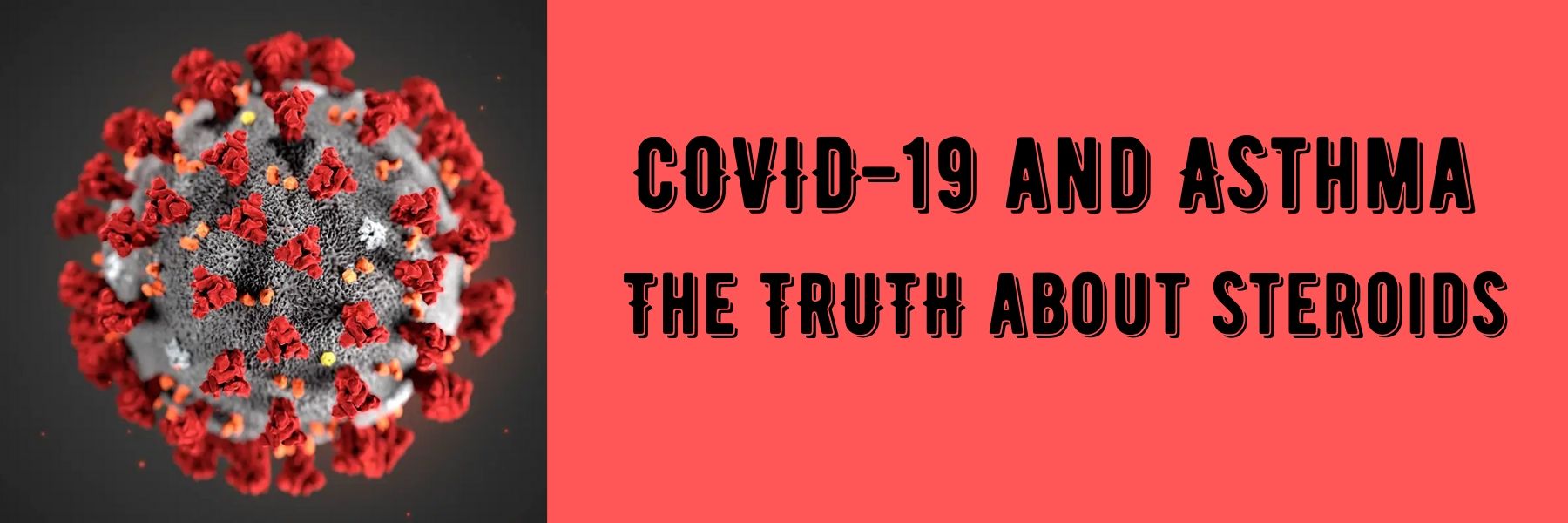 There has been a great deal of talk about steroids, asthma and COVID-19 infection. Because COVID-19 is a respiratory infection, patients with asthma may be fearful that they will face more significant symptoms if they become infected. Furthermore, the CDC (Centers for Disease Control) has stated that patients with moderate-severe asthma may be at higher risk for serious infection complications, but there is little evidence to support that asthma is a significant risk factor in the data which is currently available. Rather, age and immune compromise seem to be the largest risk factors and other medical conditions including diabetes, heart disease, and other lung disease seem to compound these.
There has been a great deal of talk about steroids, asthma and COVID-19 infection. Because COVID-19 is a respiratory infection, patients with asthma may be fearful that they will face more significant symptoms if they become infected. Furthermore, the CDC (Centers for Disease Control) has stated that patients with moderate-severe asthma may be at higher risk for serious infection complications, but there is little evidence to support that asthma is a significant risk factor in the data which is currently available. Rather, age and immune compromise seem to be the largest risk factors and other medical conditions including diabetes, heart disease, and other lung disease seem to compound these.
This post will try to clarify what we know and what we don’t know, and most importantly, what you should do if you have asthma.
TRUE or FALSE: Steroids make infection with COVID-19 worse.
TRUE (maybe) – There is some early evidence related to serious COVID-19 infection (SARS-Cov-2) and older evidence related to SARS-Cov-1 (from 2002-4), that systemic steroids do not help and may, in some instances, make things worse. Systemic steroids are usually give by IV in a hospital or ICU setting. Systemic steroids can also be high dose oral steroids like prednisone and methylprednisolone. The most important complication of COVID-19 infection is pneumonia leading to ARDS (acute respiratory distress syndrome). ARDS is an endpoint to many respiratory infections, including bacterial pneumonia and influenza-associated pneumonia. ARDS in general does not respond to treatment with systemic steroids. For patients in the hospital for COVID-19, systemic steroids are NOT part of the currently recommended treatment.
TRUE or FALSE: Stopping my inhaled steroids will help me fight COVID-19.
FALSE: There is no evidence that inhaled steroids, which are routinely used to treat asthma and COPD (chronic obstructive pulmonary disease), have a negative impact on COVID-19 infection. In fact, having asthma and COPD under maximal control is likely to benefit a person if they were to be infected by COVID-19. The purpose of inhaled steroids is to minimize inflammation in the lungs and help the lungs work as if they did not have asthma. In the face of a serious respiratory infection, lungs which can work optimally makes a lot of sense. Additionally, it does not appear that COVID-19 infection typically causes asthma attacks or exacerbation. So, if you have asthma DO NOT STOP YOUR INHALED STEROIDS.
TRUE or FALSE: If I have an asthma attack, I should not take oral steroids right now.
FALSE: During this time, both patients and doctors are rightfully concerned about possible infection with COVID-19. That being said, there are many other causes of asthma exacerbation including other viruses, allergens, and air quality. When treating worsening asthma symptoms, especially when there is no fever or other symptoms consistent with serious COVID-19 infection, oral steroids may be the best treatment option for a patient. You and your doctor, who knows your personal history and your asthma, will need to review your current symptoms and discuss treatment options that are best for you.
– Dr. Lora Stewart
For more information, see the AAAAI.org website. https://www.aaaai.org/conditions-and-treatments/library/asthma-library/covid-asthma
updated 3/25/2020
A note to all of our patients and friends:
These are truly unprecedented times for our country and for all of us. At Allergy & Asthma Care and Prevention Center, we sincerely care for all of our patients and are working countless hours to maintain your access to us and to good healthcare.
My current focus is the health and well-being of my patients and my staff. This has required my clinic to be somewhat fluid in response to the evolving pandemic and the recommendations nationally from the CDC and locally from CDPHE. We have continued to modify the way we “practice medicine”. We are now offering Telemedicine visits for many of our patients. This is a live, interactive video conference visit between you and one of our providers. Telemedicine serves several purposes right now:
We have had several days worth of Telemedicine visits now, and overall the experience has been good for both patients and for us. We are still having minor technical issues on occasion, so I ask for your patience and grace as we move forward.
For those that will need to come to our office, we have changed many of the logistics of checking in and the visits themselves. This is all in an effort to protect you and to protect my staff.
We are also receiving a high volume of phone calls and web portal messages. We will return all phone calls and messages, please be patient, I promise we are working through the messages as fast as we can.
We are hearing from many patients that have not been seen in over a year, and in some cases, several years. We want to be helpful to all patients that contact our office, but please know that we must balance this with practicing good, sound medicine. If we have not seen a patient in more than 12 months, we will not necessarily be able to provide prescriptions refills or documentation. Most of these issues can be resolved with a Telemedicine visit within a weeks time.
Unfortunately, the pandemic is unlikely to improve quickly and therefore we will continue to work hard for your health and well-being.
Thank you trusting in us, I am humbled each day by my interactions with so many wonderful patients and by my hard-working team members.
In good health, Dr. Stewart
updated 10-29-2020
As many of you know, the current COVID-19 pandemic impacted our office procedure around delivery of allergy shots/immunotherapy in our office.
We are currently scheduling ALL allergy shots. We are not allowing for any “walk-in” allergy shot visits at this time.
Allergy shot appointments can be scheduled in three different ways:
After patients receive their allergy shots, they will wait in a private assigned area.
Thank you for your understanding and patience as we navigate the ever-changing world right now!
–Dr. Stewart and Dr. Garcia